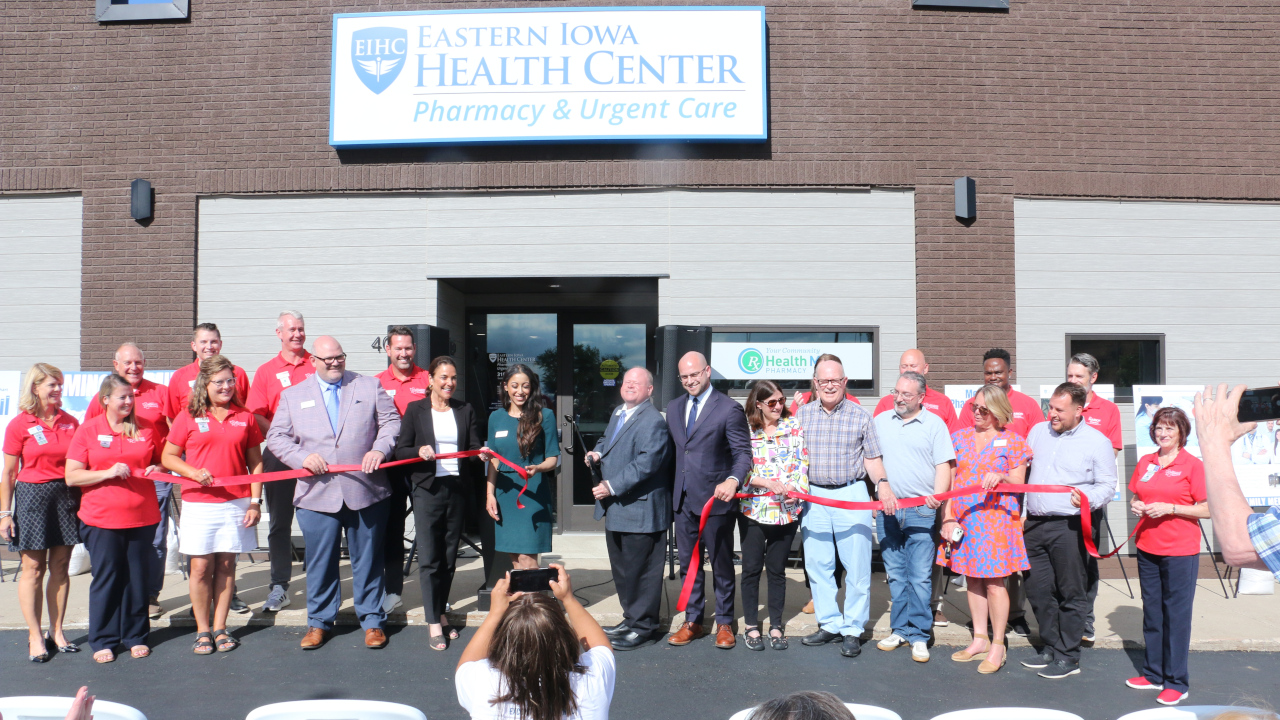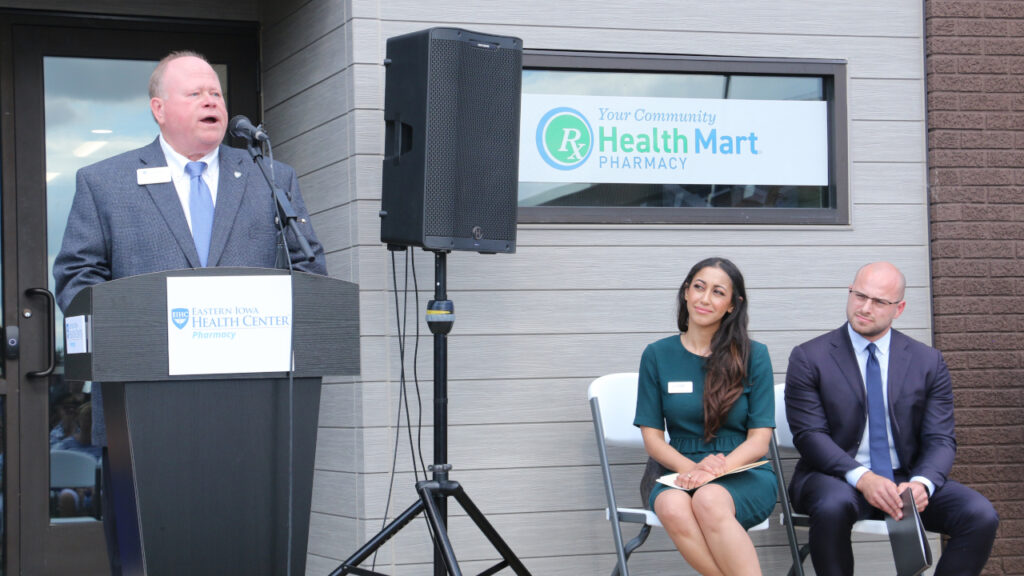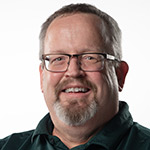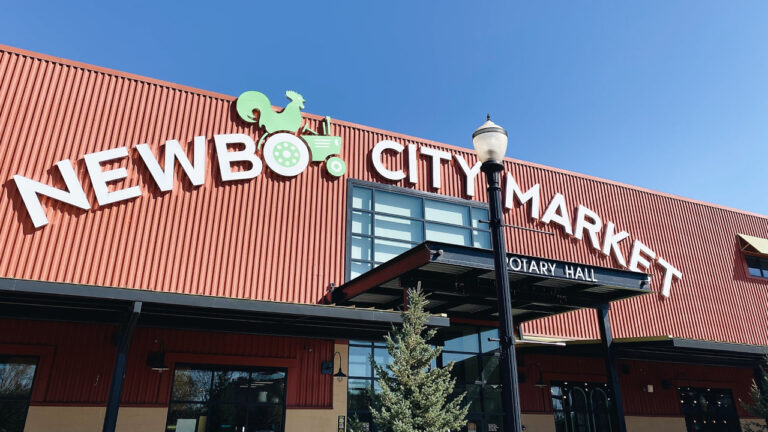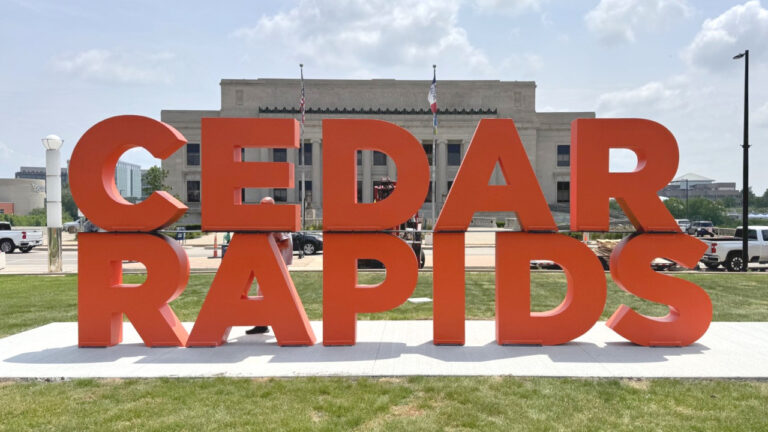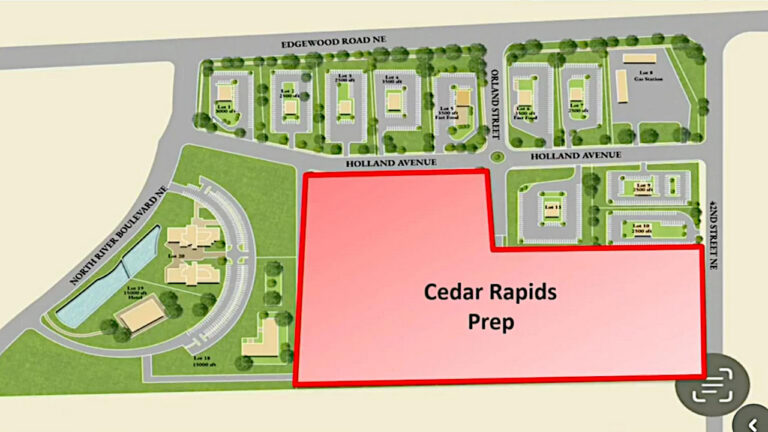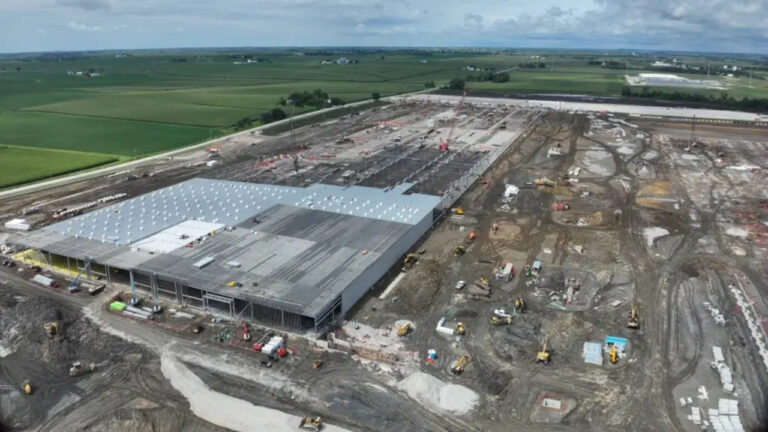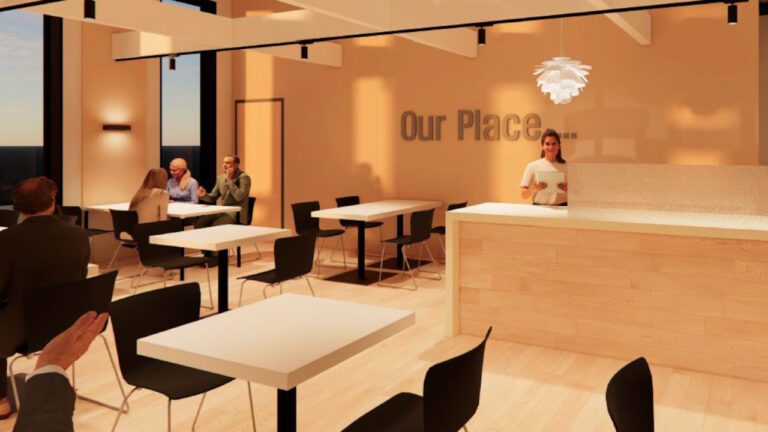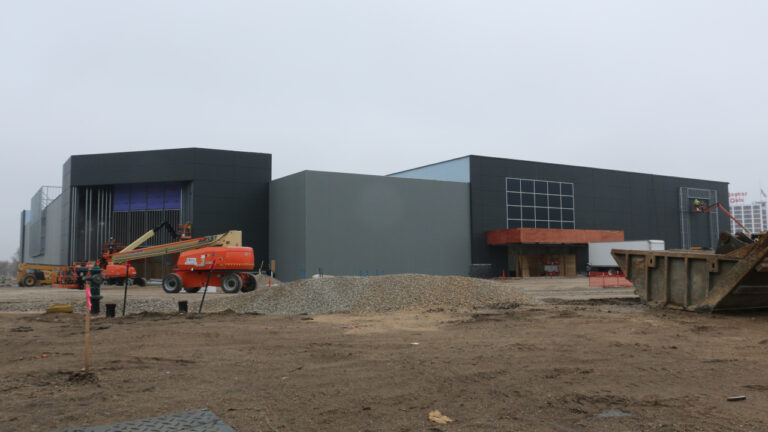The grand opening of the Eastern Iowa Health Center’s new pharmacy is about more than addressing a “pharmacy desert” in southeast Cedar Rapids.
It marks the latest step in EIHC’s expanding mission of meeting the health care needs of some of Cedar Rapids’ most economically challenged residents, speakers said at a ceremony Aug. 21 outside the new pharmacy at at 400 12th St. SE, a 10,000-square-foot building which most recently was used by EIHC as a respiratory clinic during the height of the COVID-19 pandemic.
“Today marks a significant moment in our community’s journey toward accessible and comprehensive health care for all,” EIHC president and CEO said at the ceremony. “As a federally qualified health center, our mission has been to serve those most in need. With the opening of this pharmacy, we are expanding our services to address a critical aspect of our overall health, addressing the pharmacy desert that has existed since June 26 of last year.”
EIHC leaders also stressed that the pharmacy is available to the community as a whole, not just EIHC patients.
“Our pharmacy will increase access to low- and no-cost prescriptions by removing the barrier of transportation and high prescription costs, both issues that marginalized populations experience on a daily basis, while also increasing medication adherence, which will help to eliminate treatment failures, deaths, and 25% of hospitalizations that occur every year due to this lack of adherence, thus resulting in healthier individuals, families and communities,” said Stacie Eastman, EIHC director of development and community outreach, in a September 2024 CBJ article on the new pharmacy.
The addition of pharmaceutical services is the latest chapter in the evolution of the Eastern Iowa Health Center, which boasts nearly two decades as a comprehensive provider of health services.
The EIHC traces its roots to 2006, when St. Luke’s Hospital, Mercy Medical Center, the Cedar Rapids Medical Education Foundation, the Community Health Free Clinic, Linn County Public Health and other local leaders came together to address the lack of accessible medical services for low-income community members.
The new pharmacy, which has been in the works for nearly three years, is the latest step in EIHC’s growth.
Mr. Lock noted that the EIHC provided 46,000 provider patient visits, and expects to reach 71,000 patient visits this year. With the addition of an urgent care clinic this fall and a vision care center in spring 2026, he said EIHC will eclipse 100,000 visits in the next two years.
“As we embark on this new chapter, I am filled with hope and optimism of the impact we will make in the lives of countless individuals and families in our community,” Mr. Lock said.
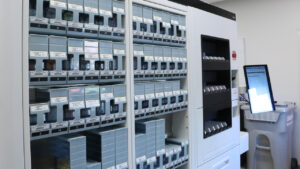
The new pharmacy is equipped with $415,000 in high-tech robots that provide an automated prescription filling system, “delivers unmatched speed, accuracy and safety in prescription dispensing,” Mr. Lock said. The system, CountMate, can automatically fill up to 160 prescriptions per hour.
“EIHC is one of the first three pharmacies in the United States to have this equipment, and it’s the first pharmacy in the Midwest to implement a solution like this,” Mr. Lock said. “We have a very talented team of pharmacists, and we want them counseling with patients and helping improve their overall health care every day, not counting pills. Robots can do that.”
Mr. Lock also encouraged the community to transfer their prescriptions to the new EIHC pharmacy, as volunteers distributed informational flyers.
“EIHC is a local business,” he said. “Keep in mind, your prescription copay is a contract between you and your insurer. It doesn’t matter where you shop, with one significant exception. If you shop at CVS, if there’s a profit, it goes to Rhode Island. If you shop at Walgreens, if there’s any profit, it goes to Illinois. The same thing with Walmart and everywhere else. Please consider helping your friends and neighbors by choosing EIHC’s pharmacy for your prescriptions. Shopping locally will keep any profits here in the community to help your friends and neighbors.”
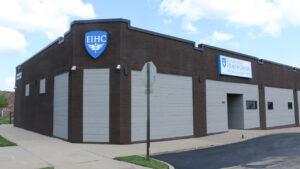
In her remarks, Cedar Rapids mayor Tiffany O’Donnell said the closing of the First Avenue Hy-Vee was “a unique experience” for Cedar Rapids.
“We really saw what that did to a community,” she said. “But what I saw up close and personal was a really quiet struggle. Those are the same people that will use this facility. They’re not out in front complaining about it, they’re not on the news. They simply just figure it out, because they don’t have a choice. So there’s a lot of people that will be served here that have quietly found another way.”
Linn County supervisor Sami Scheetz revisited the concept of hardship, noting that the Hy-Vee closure “fell hardest on those who already face the greatest barriers – seniors who may no longer be able to drive, people with disabilities, families without reliable transportation, and community members managing chronic illnesses or mental health conditions, who simply cannot afford interruptions in their care.”
“Having a place nearby to fill prescriptions, get answers to medical questions and rely on trusted providers is not just convenient,” he said. “It is the difference between stability and crisis. It’s the difference between a grandparent being able to manage their heart medication or skip doses because they couldn’t get to a pharmacy across town. It’s the difference between a parent being able to get antibiotics for their sick child right away or having to wait until the condition worsens. By opening this pharmacy in the heart of one of our core neighborhoods, Eastern Iowa Health Center is helping close a critical gap. You are sending a clear and powerful message that health care should not depend on your ZIP code, your income level, or whether you can drive across town … today is about much more than ribbon cutting. It is a reaffirmation of our values that health care is a right, not a privilege. It is proof that when we come together as a community, we can make sure that nobody is left behind.”
Juliet Abdel, the newly-named president and CEO of the Cedar Rapids Metro Economic Alliance, reviewed the EIHC’s extensive investment in health care facilities, from a $2 million renovation of their main facility, a $1 million refresh of that same facility, a $5.6 million new dental clinic and the $1.5 million investment in the new pharmacy.
“Nonprofits are indeed economic engines, creating jobs, making an impact on our local economy, and especially one that continues to reinvest in our community,” she said. “EIHC stays true to their mission of exceptional health care for all, and health centers that are more than just places to get care – they’re trusted partners, advocates and lifelines for people.”
The new pharmacy, which also offers drive-through services, will operate from 8 a.m. to 5 p.m. Monday through Friday, but hours may expand in the future as demand warrants, leaders said.
